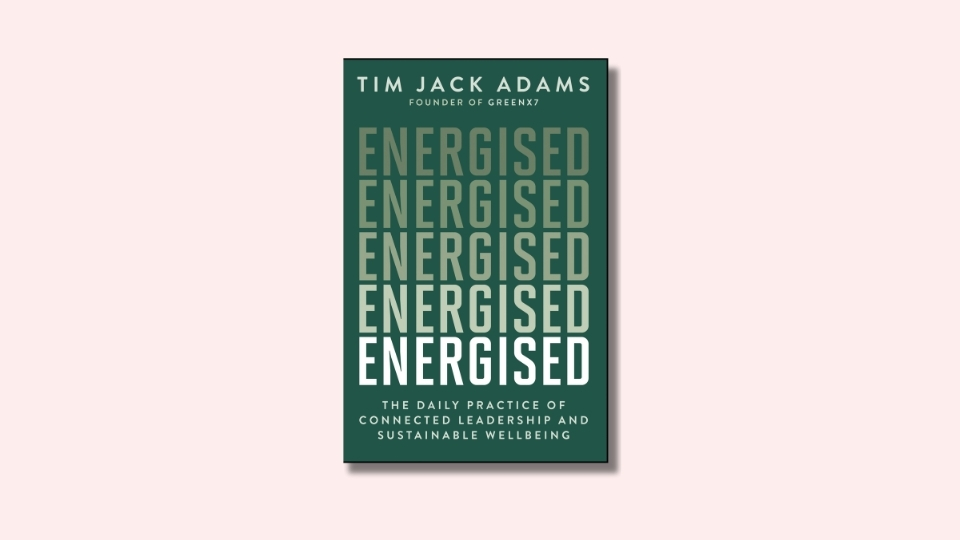Movement at work: Creative ways to energise yourself and your colleagues
Guest Writer | September 10, 2025

To live a long, healthy and happy life, you need to maintain a level of physical health that allows you to fulfil your daily and life goals. If you’re living with physical health problems, such as chronic disease or pain, you are at much greater risk of developing anxiety or depression, so it’s much better to look at prevention.
This is where your ability and willingness come into play — I could very easily ‘do nothing’, for example, and start falling into the trap of being sedentary and emotionally eating. Soon enough, my battery would start to plummet, but I’ve been there before and I’m not willing to go there again, especially when I have overactive children on my hands.
The thing is if you haven’t moved in a while, it’s very hard to find the motivation to get started — similar to the concept of inertia, which is the tendency of an object to stay as it is, whether at rest or in motion.
This concept reminds me of my first car, a little white Datsun sedan I bought for $300. Each morning I would have to use the choke just to get it warmed up —it was almost like it was sitting there thinking, “Do I really want to put my joggers on?” But once the car got moving, she purred, and it felt really good.
Movement creates movement; the more you move, the more you want to keep moving — and once you do, just like with my little Datsun, it feels really good.
Bringing physical health to work
Another reason my physical health is so important is because I know the benefits it has on my work life, and especially on my productivity and creativity. And to be at peak performance, I know I have to move my body.
Post-lunch, I notice that my brain activity starts to decline. I could just sit at my desk, staring at a blank screen or notepad, but I’m only kidding myself if I think I’m going to do good work. The term for this is presenteeism, which is being physically present but performing below your best.
Instead, I know that moving my body is a wonderful way to bring my brain back online. So I’ve built a daily habit to go and move my body after lunch, perhaps through a walking meeting, gym with a work buddy, or a beach swim if I’m working from the home office.
Consider the following to put more movement into your work day for you and your team:
- Commute using movement: Try walking or cycling to work, for example. This is good for you and good for the environment.
- Walk and talk: Whether it’s face to face or a conversation on your phone, make a habit of moving during meetings.
- Arrange some ‘play dates’: Collect some work mates and find a collective hobby over a long lunch, such as going for a jog or to the gym, or simply going for a walk in the park.
- Take the stairs: If this is an option in your building, use the stairs instead of the lift every time you arrive and leave.
- Set up a post-work workout: Getting in some sort of activity before going home after work can boost your energy to bring positives vibes into the household.
All of these activities can enhance cognitive function, reduce stress, increase energy and productivity, reduce health risks and loneliness, and improve longevity — benefits enough on their own, but even better if you’re getting paid for it!
One of the most important factors in all of this is modelling good behaviours to your team. As an example of this, I was recently on a Zoom chat with a very inspiring CEO who heads up a state-wide department. This very busy leader is aspiring to create positive systemic change across her department through preventative health measures. One of her workplace initiatives is to allow all her staff an hour over lunch to do something that will improve their wellbeing — and she makes sure this happens by kicking everyone out (weather permitting) and locking the door!

Learn more in the book Energised: The Daily Practice of Connected Leadership and Sustainable Wellbeing by Tim Jack Adams.
Keep the momentum going
Integrating movement into the workday isn’t just about fitting in a quick walk or using the stairs, it’s about shifting workplace culture. When leaders actively encourage and model movement, they show their teams that wellbeing isn’t an afterthought but an essential part of doing great work. Over time, these small, consistent changes can transform how people feel, collaborate, and perform.
Movement also fosters connection. Walking meetings or lunchtime activities create space for colleagues to build relationships outside the confines of their desks, helping to reduce stress and loneliness. These shared experiences can strengthen team bonds, which in turn can lead to more creativity and better problem-solving.
Ultimately, weaving exercise and movement into the workday isn’t just good for the body, it’s good for business. Healthier, happier employees are more focused, more engaged, and more resilient. And when teams move together, they don’t just achieve better wellbeing — they create a stronger, more energised workplace culture.
Sponsored

This article was written by Tim Jack Adams.
Tim is a global speaker and a pioneering thought leader in human sustainability and performance and has spent over a decade guiding leaders and teams to reconnect with themselves and others through nature. His book Energised: The Daily Practice of Connected Leadership and Sustainable Wellbeing is out now.
Join The Great Reconnect movement at greenx7.com
We have a request
SHE DEFINED’s journalism is independent and we’re committed to elevating the voices of women by putting them front-and-centre in our stories and giving them a platform to speak up.
Quality journalism and editorial content takes time, money and resources to create, which is why your support matters. We don’t have a paywall or exclusive subscriptions because we believe in keeping our stories open to everyone.
Help support our mission by making a financial contribution today.






